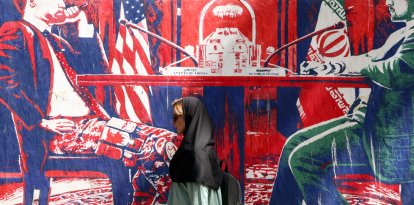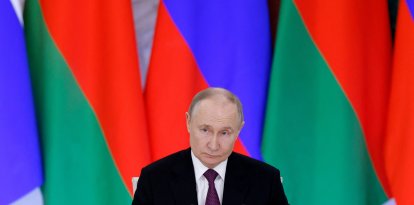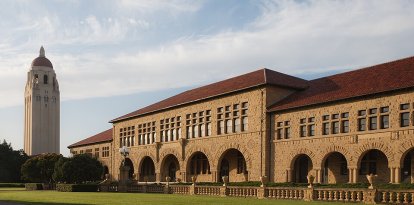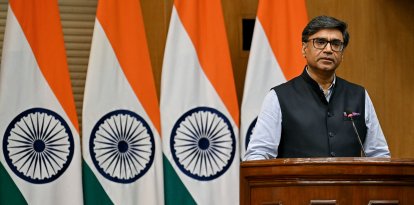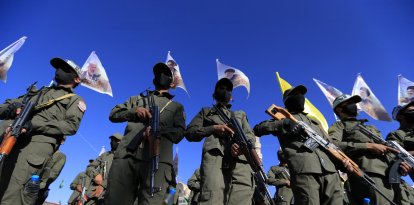Brazil intensifies "defense actions" on its northern border in the face of the escalation of the conflict between Venezuela and Guyana
The Venezuelan authorities' claim intensified on May 20, 2015, after U.S. oil giant Exxon Mobil announced that it had discovered a field near the border of the two countries.
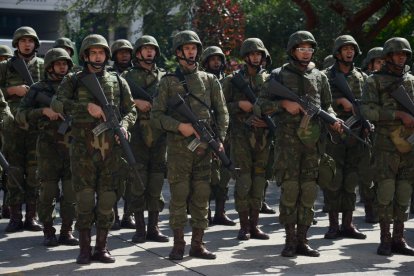
Brasil intensifica ""acciones de defensa"" en su frontera norte ante la escalada en el conflicto entre Venezuela y Guyana | Wikimedia Commons
The Brazilian Ministry of Defense reported that it has reinforced its military presence due to the growing tension between Venezuela and Guyana due to the Essequibo territorial dispute that could culminate in military action by the Bolivarian Regime of Maduro, to "recover" a territory that it historically claims as its own. The conflict has intensified after Caracas announced a consultative referendum in which Venezuelan citizens are asked if they should "reject by all means" what they describe as an attempt to "strip us of our Guayana Esequiba."
"The Ministry of Defense said, in a statement, that it has been monitoring the situation and that defense actions have been intensified in the northern border region of the country, promoting a greater military presence,'" Agencia Brasil, a media outlet, explained. public communication.
Essequibo has a wide variety of minerals and natural resources, making it one of the most diverse places in the world. In addition to its natural wealth, considerable oil deposits have been discovered in the region. Venezuela's claim intensified on May 20, 2015, after the American giant Exxon Mobil announced that it had discovered a deposit in its Liza-1 well, located in the Stabroek block, in a coastal area near the border between Guyana and Venezuela, according to the BBC.
The Brazilian state of Roraima, in the middle of the Amazon jungle, borders both Venezuela and the Guyanese region of Essequibo, which is a territory of almost 160,000 square kilometers claimed by Caracas for more than a century.
Following the decision of the Venezuelan authorities, Guyana asked the International Court of Justice to suspend the consultation, claiming that it opens the way for Venezuela to annex the territory "by any means."
"Brazil's interest is not to have military problems"
In that sense, Brazil explained that it supports Venezuela in its decision to hold the referendum because it considers that it is an internal matter. The secretary for Latin America and the Caribbean in Itamaraty, ambassador Gisela María Figueiredo Padovan, stated that she hopes that the situation will be resolved through dialogue.
" Padovan added that Brazil's interest is not to have military or war problems in the region and that it understands that the referendum that Venezuela will hold is an internal issue for the country. He also said that Brazilian diplomacy defends a solution through dialogue, either through bilateral negotiations or through the International Court of Justice (ICJ), which affirmed, in April of this year, that it has jurisdiction over the case," highlighted the Brazil Agency.
The Venezuelan consultative referendum will be held next Sunday, December 3. However, the International Court of Justice is expected to issue a position on the matter this Thursday.
According to the newspaper The National, Venezuela's claim dates back to 1899 when it protested the award made by the arbitral tribunal meeting in Paris - which ruled in favor of the United Kingdom's claims over the territory - on the grounds that there had been defects of nullity in the decision. In 1949, a memorandum by the American lawyer Severo Mallet-Prevost was made public, in which he denounced that the award was a political compromise and that the judges were not impartial. Severo Mallet-Prevost's revelations and other documents lead Venezuela to declare the award "null and void," according to the BBC. However, it was not until 1962 when he achieved tangible progress by obtaining the support of the UN, after the discovery of documents that compromised the legality of that act.
RECOMMENDATION
